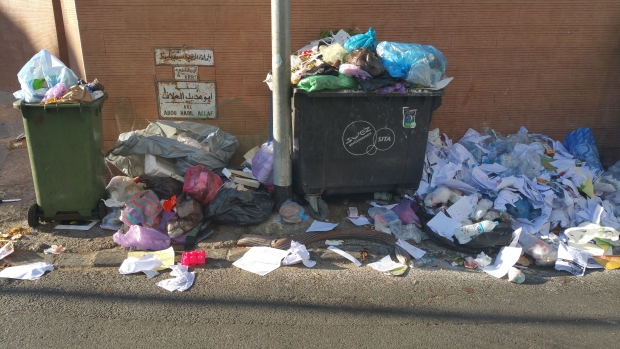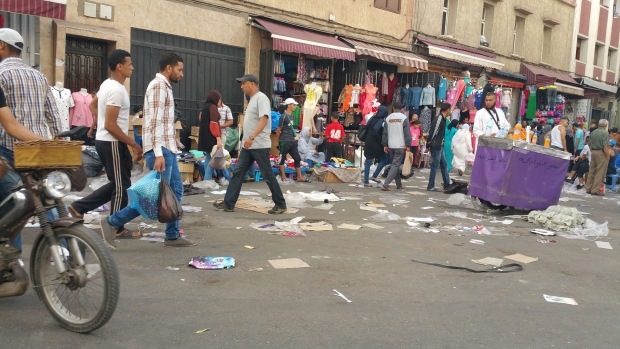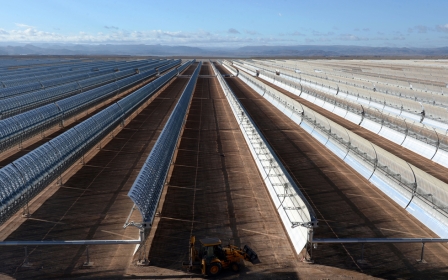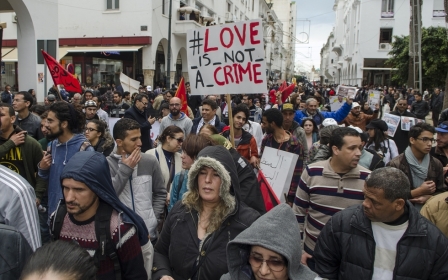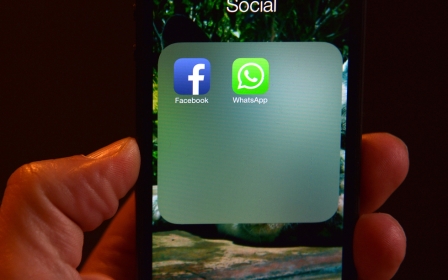Morocco goes to war on the plastic bag, but imports waste from Italy
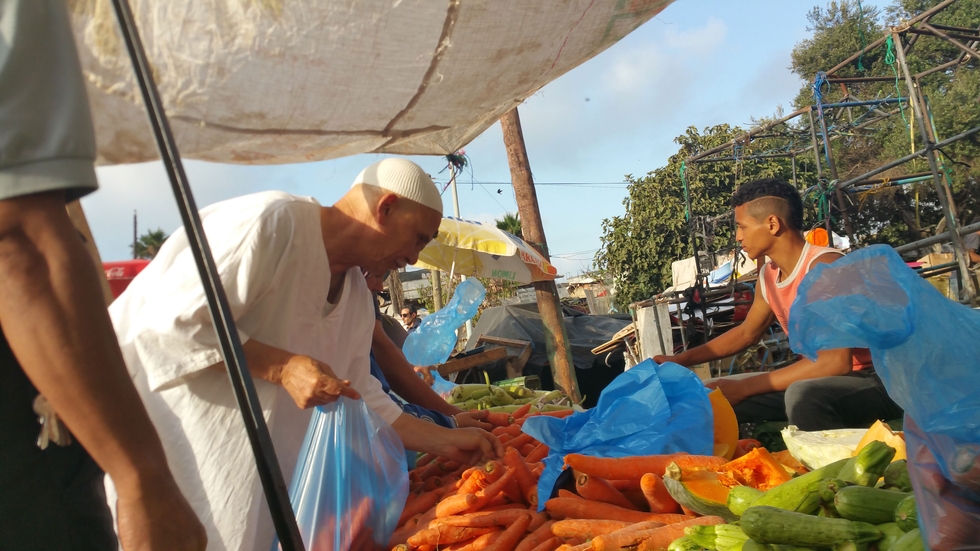
CASABLANCA, Morocco - As a country plagued by discarded plastic bags on its streets, beaches and countryside, Morocco is now moving decisively to reduce its plastic bag consumption.
The country is the world's second-largest plastic bag consumer behind the United States, using three billion annually in agriculture, industry and retail.
But in a year when it is hosting the international climate change conference (known as COP22) in December, it entered a new era dubbed “Zero Mika” (zero plastic bags) on 1 July, the same day France banned plastic bags.
The new Law 77-15 is backed by the government and civil society, despite the opposition’s outcry that it would threaten the livelihood of “over 50,000” families.
Using TV stars in its campaign to raise awareness among Moroccans, the government has made a huge leap towards a cleaner environment freed from plastic bags that have polluted its environment for years.
Alternative packaging
Plastic bag users now have to slowly replace them with baskets, trays, caddies and other alternative ways to carry their shopping. However, some shops and street sellers are using their last stocks of plastic bags despite the government’s warning of imposing hefty fines against those who break the new law, which prohibits the manufacturing, import, export, commercialisation and use of plastic bags.
The ministry of industry created a 200-million-dirham ($20.28 million) fund to help manufacturers and wholesalers convert their businesses. However, some defiant wholesalers who saw their plastic bag business disappear after the introduction of the law are willing to go against it, risking fines.
Article 9 of the law hits the manufacturers of plastic bags with a fine of 200,000 to one million dirhams ($20,280 to $101,400). As for sellers and distributors of plastic bags, Article 10 imposes a fine of up to $50,710.
For those fearing fines, the black market is their last resort to smuggle their remaining stocks, prompting the price of a kilo of disposable plastic bags to go up twofold.
Unlike France - where the law prohibits disposable plastic bags except biodegradable bags - Morocco’s law bans all kinds of plastic bags, whatever their origin.
Supermarkets are among the biggest culprits. They had to comply with the new regulations by offering their customers reusable bags instead of disposable bags but at a price. They also provide different types of packages for free according to the nature of the product, such as paper bags, cups, wrapping paper and foil.
Mixed reaction
There has been a mixed reaction to the ban on disposable plastic bags among Moroccans. Some welcomed the move as a landmark step towards a cleaner environment which has long been tarnished by ugly scenes of flying plastic bags and litter thrown in the streets. Humour was not excluded as some called for putting used plastic bags in the washing machine to reuse them since they are going to vanish in the future and become a “commodity”.
Others lament the fact that substitutes for plastic bags have not been made available in most grocery stores, making it hard for them to carry their shopping home.
The government has set an ambitious objective to eradicate plastic bags before COP22 through monitoring and cleaning operations conducted by the authorities and environmental protection associations, which started in June in different regions. However the government found itself in an embarrassing situation when it imported 2,500 tonnes of waste from Italy, before backtracking on its decision after a vehement campaign on social networks which called for the resignation of Environment Minister Hakima El Haite.
Following a cabinet meeting, Communications Minister Mustapha Khalfi announced that the government had decided two weeks ago to suspend the import of waste from Italy pending a second laboratory analysis, despite assurances from Italy’s Under-Secretary of State for the Environment Silvia Velo that the waste was not dangerous.
Morocco imports on average 4,500 tonnes of waste of “refuse-derived fuel” every year from Italy as its incineration helps to develop an alternative to fossil fuels, according to the environment ministry.
We are not trash
The hashtag “Nous ne sommes pas une poubelle” (we are not trash) was trending on Facebook where many activists and citizens heavily criticised El Haite’s decision and called for her resignation.
“China is the largest importer of oil, Saudi Arabia is the biggest importer of weapons, Morocco, meanwhile, is the largest importer of waste,” reads one banner which is circulating on the social network.
The effective campaign on social media managed to pressure the government to ban any import of waste.
This was one of the biggest setbacks of the Islamist-led government prior to October legislative elections and the hosting of COP22 which portrays Morocco as one of the world’s leading countries in renewable energies.
The destruction of polluting waste is very expensive in Italy because of the risks of dioxin emissions which are harmful to the ecosystem. Italy and other European countries seek to ship such waste to other countries outside Europe with fewer regulations to in exchange of attractive sums of money.
Morocco is one of those countries lured by financial rewards while not heeding the environmental risks and health hazards that could unfold in the long run.
Before importing more waste, a country that is reducing its reliance on oil by boosting its renewable energy capacity needs to carefully think about how it recycles its own polluting waste by opening more recycling plants in all major cities.
Morocco needs to take a leap forward in the preservation of the environment and to do so it has to clean up its own backyard before cleaning up that of others.
- Saad Guerraoui is a senior editor at Middle East Online and regular contributor to the Arab Weekly newspaper. He graduated from Newport University (London Campus) with a PhD in Business Administration. He has appeared on various satellite TV channels as an analyst.
The views expressed in this article belong to the author and do not necessarily reflect the editorial policy of Middle East Eye.
Photo: Street vendors in the ancient medina of Casablanca, Morocco, are seen providing plastic bags to customers, until they run out of stock (MEE/ Saad Guerraoui).
This article is available in French on Middle East Eye French edition.
New MEE newsletter: Jerusalem Dispatch
Sign up to get the latest insights and analysis on Israel-Palestine, alongside Turkey Unpacked and other MEE newsletters
Middle East Eye delivers independent and unrivalled coverage and analysis of the Middle East, North Africa and beyond. To learn more about republishing this content and the associated fees, please fill out this form. More about MEE can be found here.



